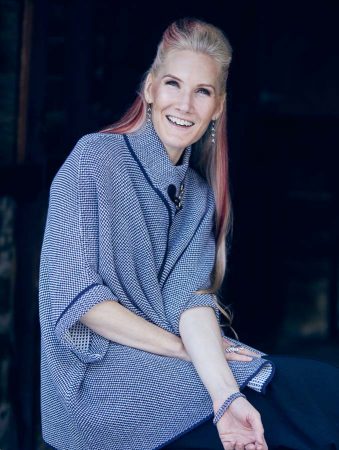Talk Topics
Writers as Puppeteers: Crafting Character and Story Through the Principles of Performance
Puppeteers create, enliven, and manipulate characters with their hands and voices. As writers, we’re essentially language puppeteers. We develop and reveal characters through words. Our language shows characters’ actions, mannerisms, thoughts, flaws, desire lines, belief systems, emotions, motivations, and overall personality traits. The writer strives to draw the reader’s attention away from the “puppeteer” and toward the “puppet.” In this keynote, I relate the principles of television puppetry performance to writing fiction. I further examine how the writer makes particularly non-human characters human by examining techniques in crafting well-realized anthropomorphic animal characters in middle grade novels.
Beyond the Nile: Cats in Ancient Culture
Ancient people were never far from animals, particularly cats. In fact, it was due to trade across the vast Roman Empire that cats eventually spread over all of Europe and perhaps as far as China. The earliest evidence of domesticated cats comes from the Mediterranean island of Cyprus nearly ten thousand years ago. By the first century BC, cats were considered sacred in Egyptian society. They were so beloved that when they died, they were sometimes mummified. Romans, however, did not worship cats. They preferred to keep dogs as pets, but welcomed cats to keep away rats and mice. Inspired by research for the children’s book, Cleo and Cornelius, loosely based on Aesop’s fable, “The Town Mouse and the Country Mouse,” this talk illuminates the fascinating life of cats in Ancient Egypt and Rome. Cleo and Cornelius is published in correlation with the J. Paul Getty Museum exhibition Beyond the Nile: Egypt and the Classical World, which runs from March 27 – September 9, 2018 in Los Angeles. The exhibition explores artistic and cultural exchange among Egypt, Greece, and Rome from the Bronze Age through the decline of the Roman Empire. It includes almost two hundred rare objects that show the influence of more than one ancient culture.
Strengthening the Narrative
Throughout my life, I have studied and participated in art forms which express the innocence, imagination and beauty of our spirit at “play” and have concluded that a skillful writer can create a significant story that articulates a child’s adventurous imagination while allowing the writer’s own to play to its heart’s content. In this workshop, we will use wordplay exercises and writing prompts to energize the imagination and improve writing skills. We’ll also explore and examine the visual art world for inspiration and technique.
Passport to Style
“Fashion is the armor to survive the reality of everyday life.” (Bill Cunningham, The New York Times’ legendary fashion photographer.) Our taste in our personal attire not only influences our identity on the outside, but our sense of style can shift our own self-perception as well our outlook on life. In this talk, I encourage audience members to know and feel that they are a meaningful work of art, whose colors, moods, emotions, beauty, character, and brilliance can all be creatively expressed through countless artistic ways and certainly through one’s own unique fashion.
Writing Messy: The Art of Imperfection
In this keynote, I discuss the ways in which writers can transform their narratives before a draft resembles anything close to perfection by experimenting with psychic distance, worldbuilding setting, rhythm and beats, showing not telling, flashbacks, off-page characters, effective pacing, character motivation, relaying imagery and emotion through sensory impressions, crafting an epistolary POV, developing dialogue that creates character and drives the story, using the symbolism of endowed objects to relay story, using body language to show emotion and reveal character, balancing scene and summary, advancing plot through tension and suspense, raising emotional stakes through inner conflict, crafting unique, clear voices and points of view through meaningful relationships, and revealing complexities of character through action and behavior.
Language and Identity: How Words Develop and Establish Personalities, Relationships and Cultures
Words matter. The right dialogue can inspire a philanthropist to donate millions to a cause. But words can also create strife and discord. Words are powerful and our control over our language can dramatically affect and alter the world in which we live. In this workshop, we’ll look at powerful examples in popular culture of how subtle shifts in language can change the world. We’ll also explore how to deepen our understanding of language to enhance our ability to make the greatest positive impact on the world around us.
